Australia and allies must spend more on defence to stop ‘peril’ of our times, Kurt Campbell warns
In a first for any US administration, Deputy Secretary of State Kurt Campbell has told The Australian that China is actively seeking to establish a military base in the South Pacific.
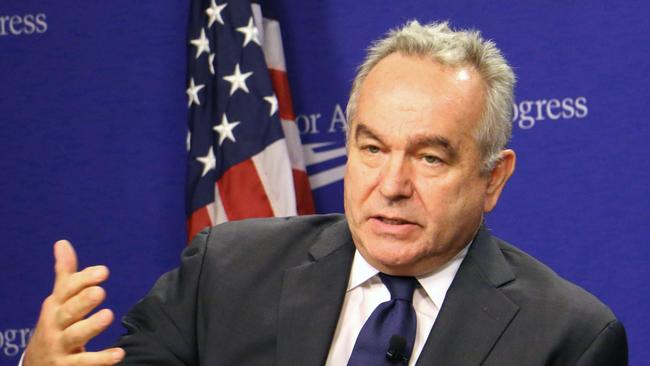
Australia, the US and other allied nations must increase their defence budgets and military preparedness because of the “enormous peril” of the times we live in and China’s increased strategic co-operation with Russia, Iran and North Korea, US Deputy Secretary of State Kurt Campbell has warned.
In an exclusive interview with The Australian, held during the Washington meeting of the Australian American Leadership Dialogue, Dr Campbell pointed to the success of the AUKUS agreement in generating research and development in new technologies relevant to the military, but also stressed the need for urgent action on defence capabilities.
“I think that’s probably the case that we’re all going to have to do more,” he said.
“We need short-term stocks of critical ordnance. We need more shipbuilding across the alliance.”
Dr Campbell is Washington’s single most influential policy figure on Asia. He became Deputy Secretary of State after three years in the White House as the national security council co-ordinator on the Indo-Pacific. In the Obama administration, he was assistant secretary of state for East Asia and before that held important positions in the Pentagon.
In a first for any US administration, Dr Campbell told The Australian that China was actively seeking to establish a military base in the South Pacific.
The Australian government believes such a development would be catastrophic for Australian and New Zealand security, but Washington and Canberra have previously been shy of explicitly and publicly calling out Beijing’s military intentions.
This Chinese ambition poses a permanent challenge for Australian and American diplomacy.
“They’re looking across the Pacific,” Dr Campbell said. “This is something where we’re never going to be able to rest.”
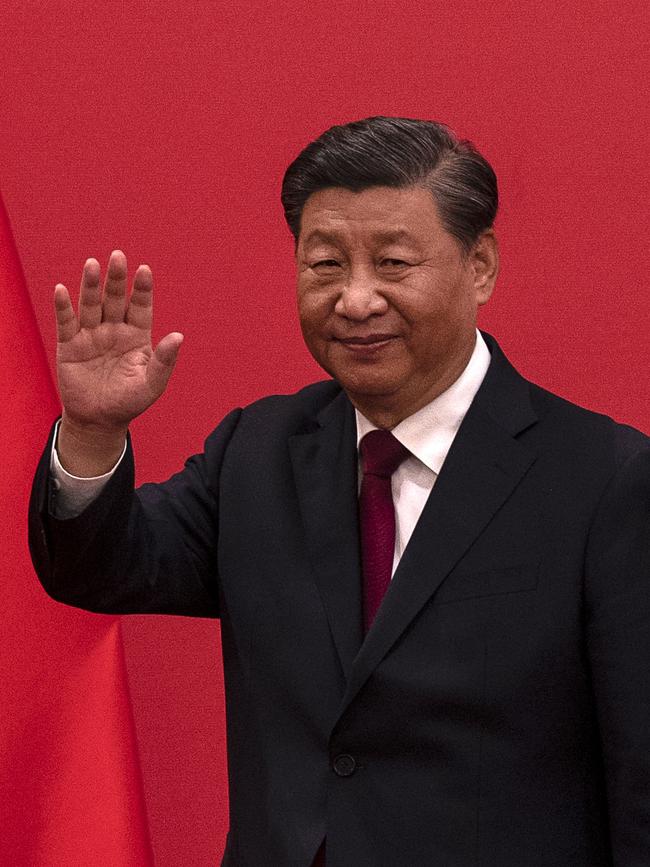
He said Chinese interests in the South Pacific extended far beyond a military base: “They’re looking for a variety of things. There are vast fishing resources in the Pacific which are being over-fished by Chinese fishing fleets.
“When China looks at its space operations, they need nodes on the ground. They’ve built some of those nodes in the South Pacific.
“They’re looking for steaming sites, places for resupply and power projection.”
Dr Campbell, who played a critical role in bringing the AUKUS agreement about, also hailed the long-term benefits that AUKUS, plus similar co-operation with other US allies, will deliver to the US alliance with Australia.
This is partly because of the newly joined-up quality of research and development among US allies, especially Australia, in critical technologies: “We have seen unprecedented investment in new technologies – artificial intelligence, quantum computing, 5G, 6G – these are the technologies which are going to be the components of any effort to maintain the high ground in global competition.
“Over the last three or four years, both US domestic investment and that of other (friendly) nations must be in the order of $US300bn or $US400bn.”
His comments came as the NATO summit was shaping up to be a key test for President Joe Biden and his political future.
Mr Biden was set to continue meeting world leaders through Thursday (Friday AEST) and give a make-or-break press conference to quell a growing rebellion in his own party.
Mr Biden’s campaign was rocked on Wednesday after Nancy Pelosi – the former Democratic speaker of the house – questioned whether he had truly finalised his decision to run for a second term and Oscar-winning actor and top party donor George Clooney called for the President to drop out of the race completely.
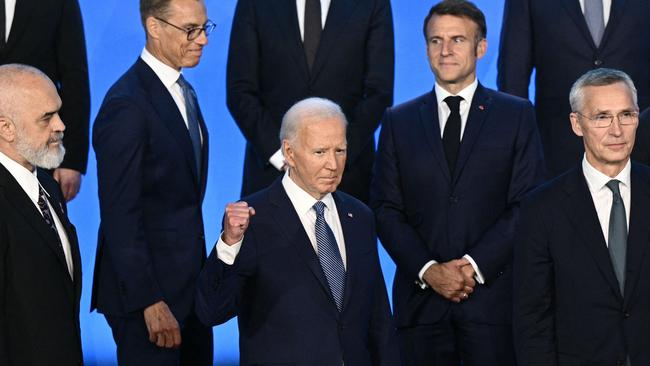
Dr Campbell, a life-long Democrat, is also a foreign policy professional and he would not be drawn on the challenge to Mr Biden arising from his disastrous performance in the TV debate against Donald Trump.
He did defend Mr Biden’s foreign policy record: “The most important contribution of President Biden, and here I would distinguish him from more Trumpist variants of foreign policy, is he believes the US is much more effective with allies and partners.
“You’ve seen that with the latticework approach with Australia, Japan and South Korea, also in linking the Indo-Pacific with Europe. The work has been done, and Australia has been central to this.
“There will be a debate in the US about the nature of America’s role. Some will argue that America would do better with fewer encumbering international associations, and it should go it alone.
“I think that’s wrong.”
Without commenting on Mr Trump in any way, and certainly without endorsing the former president, Dr Campbell said he believed there was such widespread bipartisan congressional and political support for AUKUS, and for Australia, that the program would survive on a bipartisan basis whatever the vagaries of US politics.
AUKUS, he said, was one of the most important strategic initiatives ever undertaken by the US, Britain or Australia.
Dr Campbell said he believed co-operation among the four authoritarian nations – China, Russia, Iran and North Korea – had heightened, and presented new dangers for allied policymakers.
He said: “There are signs of danger and worry about how Iran, China and North Korea have supported the war effort of Russia in Ukraine.”
The China-Russia co-operation has been a result of long-term, deliberate policy by China’s President Xi Jinping.
Dr Campbell expressed frustration at what he saw as foreign nations spreading lies about the AUKUS agreement.
“We’ve been hit by a barrage of misinformation and disinformation about AUKUS. We always have to clarify the difference between nuclear-powered and conventionally armed submarines as opposed to nuclear weapons submarines. That blurring has been purposeful by China and Russia. We must be much more vigilant in telling our story and combating misinformation.”
China and Russia had been particularly active in spreading misinformation about AUKUS in Southeast Asia and among nearby nations, he said.
However, he also expressed frustration at some of the negative reporting about AUKUS in the international press: “There are four or five reporters that tend to focus on AUKUS in the global media. Almost all of their coverage is negative. There’s very little about the common purpose and the achievements (of AUKUS).
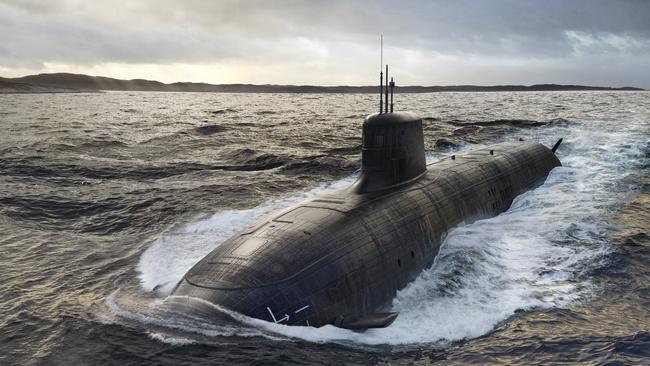
“One of the first things Xi did when he came to power was to build a much deeper relationship not just with Russia but with Vladimir Putin himself. They’ve met dozens of times. It’s the deepest strategic embrace, based on a combination of 1950s nostalgia ideology and 1930s-style territorial ambitions. It’s dangerous and it must be called out. It must be resisted.
“It’s fair to say the range of strategic challenges is deep and profound. This is a time of enormous peril. It puts an enormous set of burdens on the US.
“I believe we have lived up to the challenge.”
Dr Campbell praised “the work that’s been done, and Australia has been at the heart of it, on the institutionalisation of co-operation among democracies.”
He said he believed Canberra had led US policy on the South Pacific and had much more influence in Washington than was generally thought … indeed that Australia today had more influence and presence at the top of US government than ever before.
Dr Campbell delivered this striking assessment of Australia’s standing in the US: “There is no country held in as high regard as Australia. In recent years, Australia has been elevated to the absolute summit. Because of the Indo-Pacific, that is only going to grow over time.
“We’ve just now, with the help of Australia, had the biggest uptick in investment in our submarine program since the Rickover navy (Admiral Hyman Rickover, father of the US nuclear navy, retired in 1982). We now better understand, through AUKUS, that we need to polish what is the jewel in our defence industrial effort, which is our (nuclear) submarine program.”
The other striking challenge he nominated for the future of the alliance was the need to sell the alliance to young people who did not automatically understand the defining experiences of World War II and the period immediately after. He particularly praised the Australian American Dialogue for involving dozens of younger people through its Young Leaders Dialogue.
“Ultimately, I believe the fundamentals align the US and Australia more than ever.
“I’m very optimistic about this relationship.”


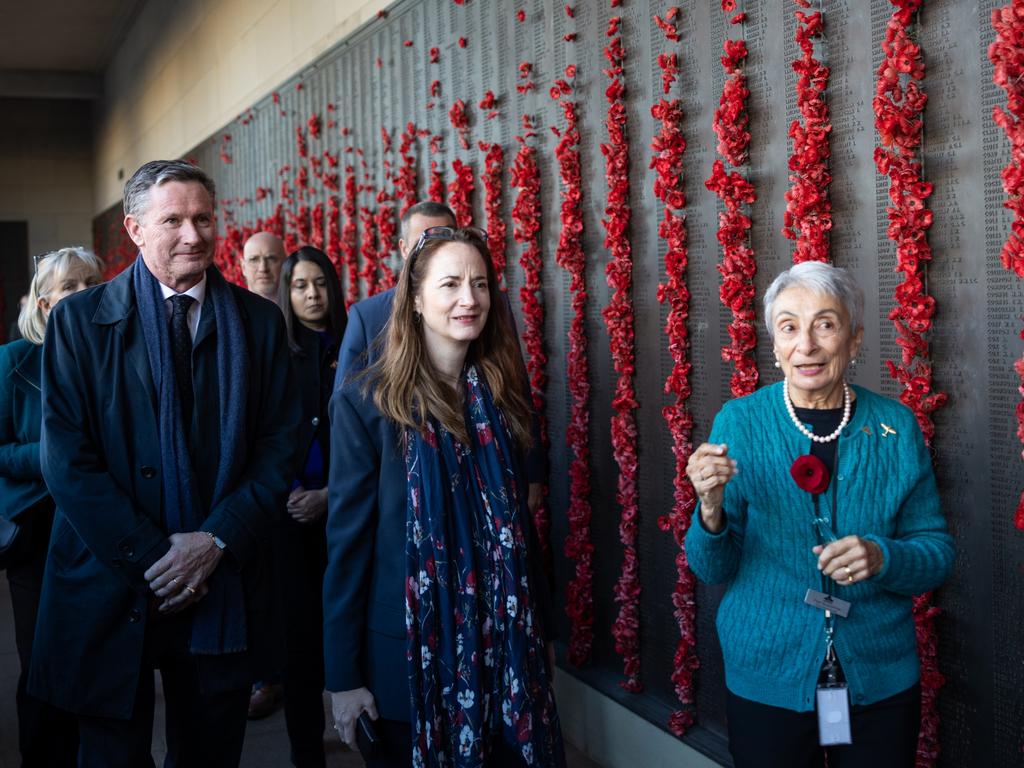
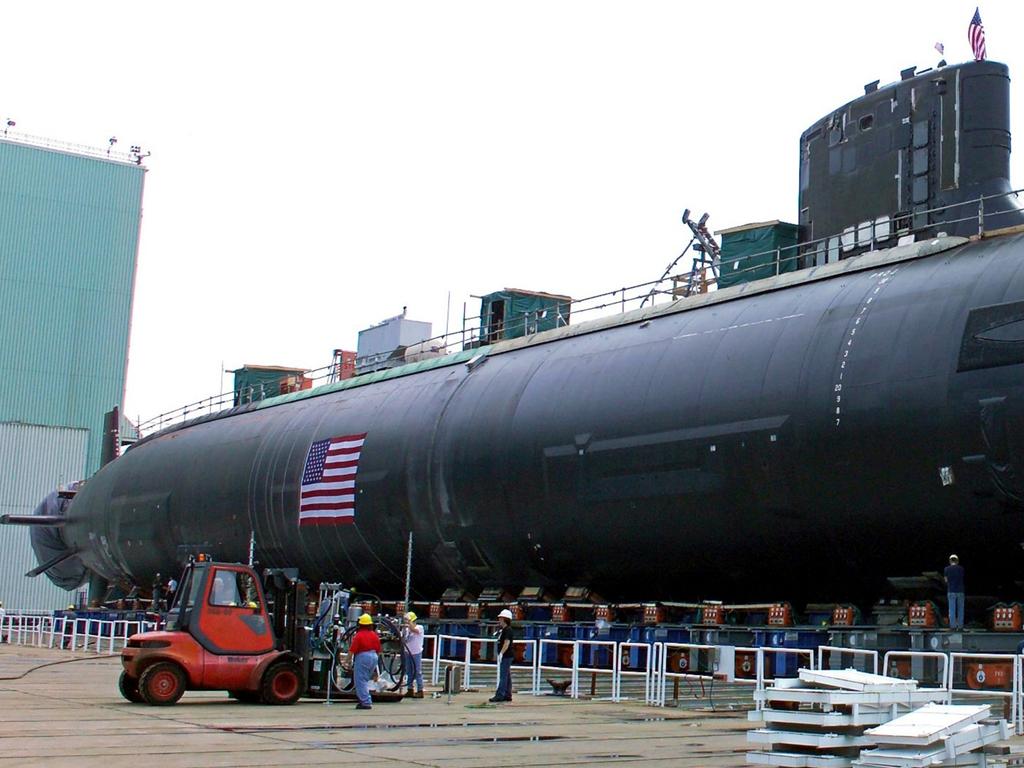



To join the conversation, please log in. Don't have an account? Register
Join the conversation, you are commenting as Logout